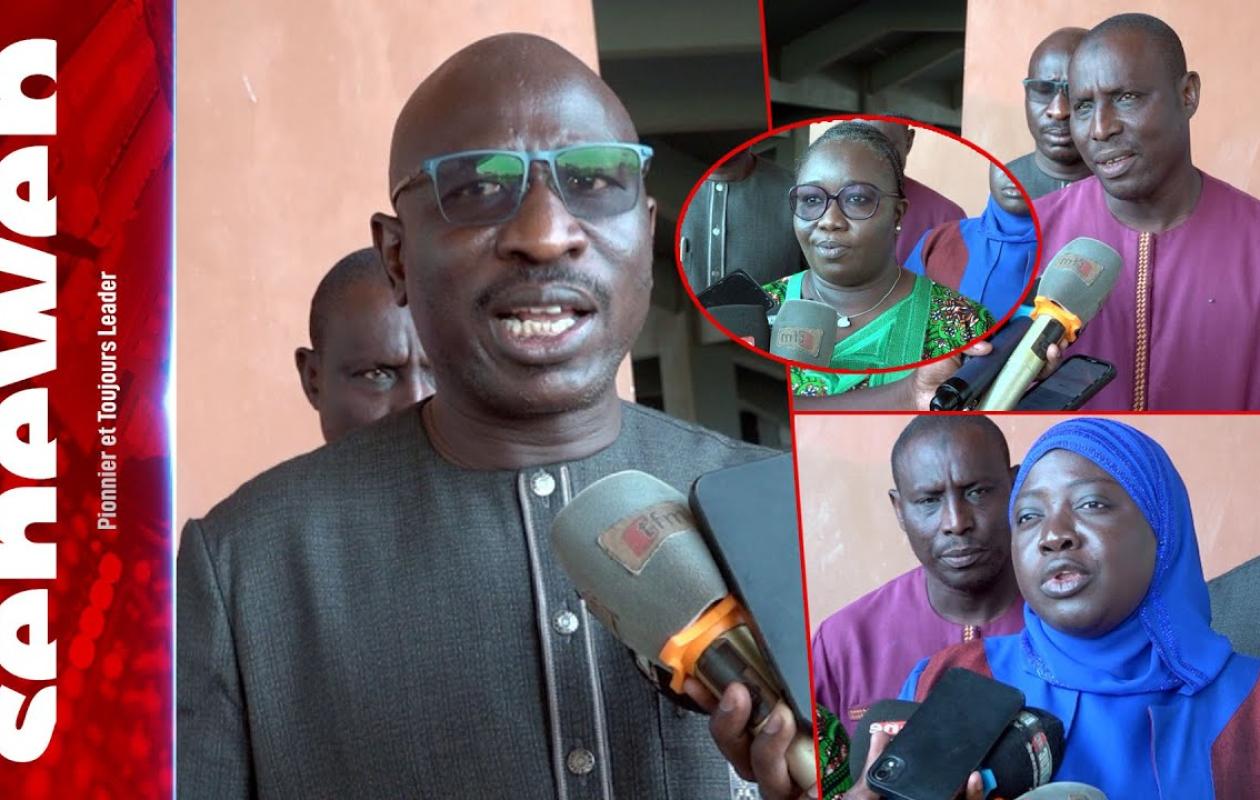
PACASEN : l’ADM outille les collectivités territoriales pour une meilleure gouvernance environnementale
The National Arena hosted a unique event on Tuesday, October 7, 2025. Far from the wrestling matches that thrill its stands during the season, the venue was transformed into a space for exchanges and capacity building on environmental and social management in local authorities.
This continuous territorial coaching (CTC) mission, initiated by the Municipal Development Agency (ADM) as part of the Support Program for Municipalities and Agglomerations of Senegal (PACASEN), brought together representatives of the departments of Rufisque, Keur Massar and Pikine.
Yacine Tine Dieng, Director of the Dakar Regional Development Agency (ARD), outlines the issues: "We are meeting today as part of PACASEN's ongoing territorial coaching program, focusing on environmental and social management, but also on promoting citizen participation and implementing the complaints management mechanism." She explains that the objective of these days is "to strengthen the capacities of local authorities, including 51 in the Dakar region, so that they can better address environmental aspects in projects funded by PACASEN."
Since 2019, municipalities involved in the program have been supported in integrating climate change imperatives into their development plans. "It's important to encourage them to take climate change into account in their projects," continues Yacine Tine Dieng, who welcomes the partnership between the ARD, ADEME experts, and local technical divisions.
This approach, explains Ndeye Sagne, senior environmental safeguards specialist at ADM, is based on a specific regulatory framework. "Since the advent of the 2001 Environmental Code, updated in 2023, every development project or program must undergo an environmental and social assessment. And within the framework of PACASEN, this principle is essential," she says.
The ADM has thus developed an environmental and social management manual outlining the procedures to follow to integrate environmental considerations from the planning phase. "This manual specifies the roles and responsibilities of local authorities," says Ndeye Sagne, while reiterating that compliance with its provisions constitutes a mandatory minimum condition of the program. "Today, all PACASEN pilot local authorities are required to conduct environmental screening of their projects before any implementation," she insists.
This support work also extends to citizen participation, a cornerstone of the system. "Citizen participation is a cross-cutting theme of PACASEN. The ADM drew inspiration from the General Code of Local Authorities to develop a guide to citizen participation and a complaint resolution mechanism," explains Ndeye Sagne. This guide stipulates that communities be involved from the moment projects are chosen, but also during their execution. She specifies: "In the event of disturbances or disagreements, populations have the option of contacting their local authority. These complaints are handled easily thanks to a local system and the designation of focal points."
Municipalities now have a harmonized complaints management mechanism and local committees to ensure its proper implementation. "We are working with the regional environmental and climate change departments to support municipalities and harmonize these systems," adds the specialist, who also points to a strong institutional partnership.
For local elected officials, this coaching mission appears to be an essential lever. Ousseynou Fall, representative of the Thiaroye-sur-Mer town hall, believes that "this ongoing territorial coaching is extremely important for local authorities." According to him, it helps improve the quality of projects while promoting citizen ownership: "We must involve the population in the choice of projects. This is what justifies holding public information meetings."
Local authorities develop their projects based on municipal development plans (PDC) and three-year investment plans (PTI), validated by the population and municipal councils. "This coaching is all the more important because it monitors capacity-building plans and project implementation," continues Ousseynou Fall. He points out that these initiatives contribute to "addressing environmental challenges such as flooding and biodiversity preservation."
The community's commitment comes with a performance objective. "We want all communities to pass by the end of the year, because those that succeed receive their performance allowance," says the representative of Thiaroye-sur-Mer. He emphasizes the importance of increased communication around these initiatives: "We need the press to support us, because when we talk about the press, we talk about the population."
On a technical level, the environmental system relies on a rigorous process. Abdourahmane Ndour, head of the Regional Division of the Environment and Classified Establishments (DREEC) in Dakar, details the steps. "Under PACASEN, investors are now required to make socially responsible investments. The environment has become a mandatory requirement."
"Environmental screening allows us to conduct a field visit, identify the aspects to be corrected and those to be strengthened, before giving an implementation agreement with specific recommendations," he explains.
This monitoring continues after authorization, in coordination with the ADM: “We carry out environmental monitoring to verify the compliance of projects with the recommendations made.”
For Abdourahmane Ndour, this commitment reflects a shift: "Communities have understood that the environment is no longer an option. They cannot carry out a project without identifying the potential impacts and ensuring that the chosen site is truly suitable for hosting the project."
Commentaires (1)
Participer à la Discussion
Règles de la communauté :
💡 Astuce : Utilisez des emojis depuis votre téléphone ou le module emoji ci-dessous. Cliquez sur GIF pour ajouter un GIF animé. Collez un lien X/Twitter, TikTok ou Instagram pour l'afficher automatiquement.